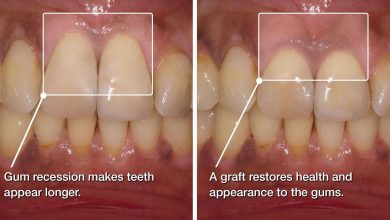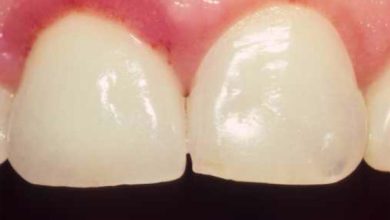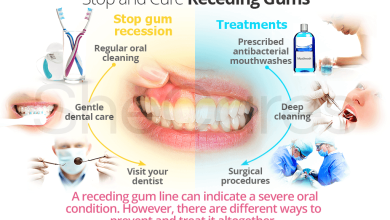What is Dental Gum?

Dental gum is a type of chewing gum specifically designed to promote dental health, usually by incorporating ingredients that help to prevent tooth decay and gum disease. Dental gum is formulated to freshen breath, reduce plaque and tartar buildup, and stimulate saliva production, which aids in the natural cleaning and protection of teeth and gums.
It can be found in various flavors and is typically sugar-free. Many dental gums also contain ingredients like xylitol, which has been shown to have antimicrobial properties and can help reduce the risk of cavities. By incorporating dental gum into your oral care routine, you can improve your dental hygiene and maintain a healthy smile.
Benefits Of Dental Gum
html
Dental Gum: Dental gum is a type of gum that offers numerous benefits for oral health. It is specially formulated to promote dental hygiene and prevent various dental issues.
| Benefits of Dental Gum |
|---|
| Reduces plaque buildup |
| Promotes healthy gums |
| Freshens breath |
Dental gum helps reduce plaque buildup by stimulating saliva flow, which aids in neutralizing acids and reducing bacteria in the mouth. Regular chewing of dental gum can contribute to healthier gums by increasing blood flow and providing a gentle massage to the gum tissue. Additionally, the action of chewing gum helps stimulate saliva production, which naturally cleanses the mouth and freshens breath by removing food particles and bacteria.
Overall, incorporating dental gum into your oral hygiene routine can contribute to maintaining a healthy mouth and preventing dental problems. Remember to choose gum that is sugar-free and endorsed by dental professionals for optimal benefits.
Ingredients In Dental Gum
Dental gum is a specialized type of gum that is formulated to promote oral health and prevent dental issues. It contains a unique combination of ingredients that help in maintaining a healthy mouth. One such important ingredient is xylitol, which is a natural sugar substitute that helps reduce the risk of tooth decay. It inhibits the growth of bacteria in the mouth and prevents them from sticking to the teeth. Another essential ingredient in dental gum is peppermint oil. Peppermint oil provides a refreshing taste and helps freshen breath. It also has antimicrobial properties that help in killing bacteria. Additionally, dental gum may contain eucalyptus extract. Eucalyptus extract has anti-inflammatory properties and can help soothe gum irritation. These ingredients work together to provide multiple oral health benefits and are an easy and convenient way to maintain a healthy mouth.
Choosing The Right Dental Gum
Dental gum is a popular oral health product that offers benefits beyond freshening breath. Choosing the right dental gum is important for maintaining good dental hygiene.
| Sugar-free options | ADA approved | Flavor preferences |
|---|---|---|
| Dental gum without sugar helps prevent tooth decay and cavities, making it suitable for those who want to maintain their oral health. | Look for dental gum that has been approved by the American Dental Association (ADA). This ensures that the product meets the necessary standards for safety and effectiveness. | When it comes to flavors, individuals have different preferences. Some may prefer mint, while others enjoy fruity or herbal options. It’s important to choose a flavor that you enjoy for a more enjoyable chewing experience. |
Whether you choose sugar-free options, look for ADA approval, or consider flavor preferences, selecting the right dental gum is essential for maintaining oral hygiene. Regularly chewing dental gum can contribute to fresher breath, cleaner teeth, and a healthier mouth overall.
How To Use Dental Gum
Dental gum is a type of gum that is specifically designed to promote oral health. It contains ingredients like xylitol, which helps reduce the risk of tooth decay and cavities by inhibiting the growth of harmful bacteria in the mouth. Using dental gum correctly is essential for reaping its benefits.
After meals, it is recommended to chew dental gum for about 20 minutes. This will help stimulate saliva production, which in turn neutralizes acids and clears food debris from the teeth. Chewing dental gum right after eating can also help reduce bad breath.
It is important to follow the recommended dosage of dental gum to avoid potential side effects. Excessive consumption may lead to gastrointestinal issues.
Proper chewing techniques can maximize the effectiveness of dental gum. It is advisable to chew slowly and thoroughly, making sure to incorporate all areas of the mouth. This allows the gum to come into contact with all the teeth and gums, promoting a thorough cleaning.
Dental Gum Vs. Regular Gum
Dental gum and regular gum differ in terms of their ingredients, oral health benefits, and considerations for gum lovers. While regular gum is primarily focused on providing a pleasant chewing experience, dental gum goes a step further by offering additional oral health benefits.
Dental gum typically contains ingredients like xylitol, a natural sugar substitute that has been found to reduce the risk of tooth decay. It also often includes fluoride, a mineral that strengthens tooth enamel and helps prevent cavities. On the other hand, regular gum may contain artificial sweeteners and flavors that are not specifically beneficial for oral health.
When it comes to oral health benefits, dental gum can help stimulate saliva production, which neutralizes acid and protects against tooth decay. It can also help remove food particles and plaque from teeth. Regular gum, while it may freshen breath and reduce snack cravings, does not provide these same oral health benefits.
For gum lovers, it is important to consider factors such as the presence of dental issues, personal oral hygiene routine, and taste preferences. Additionally, individuals with specific dental concerns should consult with their dentist before choosing a gum product to ensure it aligns with their specific needs.

Credit: wmsmile.com
Best Dental Gum Brands
What is Dental Gum?
Dental gum is a type of chewing gum specifically designed to promote oral health. It is enriched with ingredients that help improve dental hygiene by preventing cavities, reducing plaque, and freshening breath. Dental gum typically contains xylitol, a natural sugar substitute that inhibits the growth of bacteria in the mouth, reducing the risk of tooth decay. Some brands of dental gum also include other beneficial ingredients such as calcium and vitamin C.
| Brand A | Brand B | Brand C |
| Brand A offers a wide range of dental gum flavors and provides long-lasting freshness. Their gum is also sugar-free, making it an excellent choice for those concerned about their dental health. | Brand B’s dental gum is formulated with xylitol and contains natural extracts that help remove bacteria and plaque from teeth. It also has a refreshing minty flavor. | Brand C’s dental gum is specifically designed for sensitive teeth. It is gentle on tooth enamel and provides relief from tooth sensitivity while promoting oral health. |
When choosing the best dental gum brand for you, consider factors such as flavor preference, sugar content, and specific dental needs. Regularly incorporating dental gum into your oral hygiene routine can provide additional benefits alongside regular brushing and flossing.
Faqs About Dental Gum
Dental gum is a type of chewing gum that has been specifically designed to improve oral health. It contains ingredients like xylitol and fluoride that can help prevent tooth decay and promote fresh breath. Here are some frequently asked questions about dental gum:
- Is dental gum safe?
Yes, dental gum is considered safe for most people. However, it’s important to check the ingredients and make sure you’re not allergic to any of them. - Can children use dental gum?
Yes, children can use dental gum, but it’s important to choose a product that is specifically designed for their age range. - How long should I chew dental gum?
It is recommended to chew dental gum for about 20 minutes after meals. This allows enough time for the gum to release its active ingredients and provide the desired benefits.
Frequently Asked Questions On What Is Dental Gum?
What Is Dental Gum Used For?
Dental gum is used to improve oral hygiene by freshening breath, reducing plaque buildup, and stimulating saliva production.
What Is Tooth Gum Made Of?
Tooth gum is made of a combination of tissues, including connective tissue and oral mucosa. It also contains fibrous material called collagen, blood vessels, and nerves that support and protect the teeth and bone.
What Is The Best Chewing Gum For Your Teeth?
The best chewing gum for teeth is one that contains xylitol, as it helps reduce the risk of tooth decay and promotes saliva production, which has a natural protective effect on teeth. Look for gum that is sugar-free and ADA-approved for optimal oral health benefits.
Why Would You Need Gum Treatment?
Gum treatment is important to maintain oral health and prevent gum disease. It helps to remove plaque buildup, reduce inflammation, and treat gum infections. Regular gum treatment can improve the health of your gums, prevent tooth loss, and enhance overall oral hygiene.
Conclusion
Overall, dental gum is an effective tool in maintaining oral health and freshening breath. With its unique blend of ingredients, dental gum offers various benefits such as plaque reduction and cavity prevention. By incorporating dental gum into your daily oral hygiene routine, you can improve your overall dental health and ensure a confident smile.
Grab a pack of dental gum and start reaping the benefits today!





